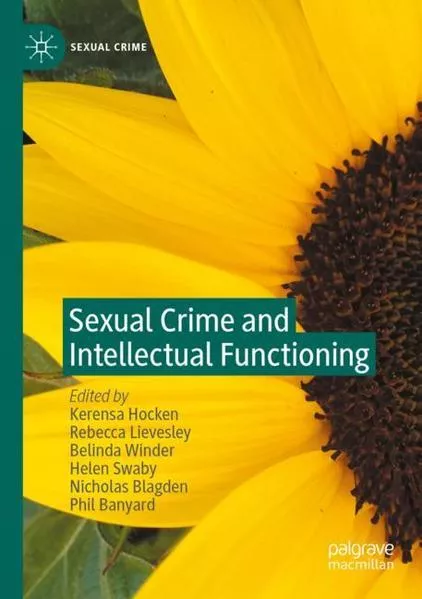
- Publikationen ca: 3
- Fragen & Antworten
Kerensa Hocken
Kerensa Hocken is a registered Forensic Psychologist in HMPPS Midlands Psychology Service. She specialises in the assessment and treatment of people who commit sexual offences with intellectual disabilities.
Rebecca Lievesley is Lecturer in Psychology at Nottingham Trent University, UK and has conducted research within the criminal justice system for many years.
Belinda Winder is Professor of Forensic Psychology and Head of the Sexual Offences, Crime and Misconduct Research Unit at Nottingham Trent University, UK.
Helen Swaby is Lecturer in Counselling at Bishop Grosseteste University, UK. She has a background in Forensic Psychology and is a trainee Integrative Psychotherapist.
Nicholas Blagden is Associate Professor and co-leads the Sexual Offences, Crime and Misconduct Research Unit at Nottingham Trent University, UK.
Phil Banyard is Head of the Psychology Department at Nottingham Trent University, UK. He is a recipient of the British Psychological Society’s Award for Distinguished Contributions to Psychology Education.
Sexual Crime and Intellectual Functioning
This book explores sexual crime and intellectual functioning. Drawing on expertise from clinical practice and applied research, the volume begins with an exploration of the theoretical and historical background to the interest in links between sexual offending and intellectual functioning.
Sexual Crime and Intellectual Functioning
This book explores sexual crime and intellectual functioning. Drawing on expertise from clinical practice and applied research, the volume begins with an exploration of the theoretical and historical background to the interest in links between sexual offending and intellectual functioning.
Sexual Crime and Intellectual Functioning
This book explores sexual crime and intellectual functioning. Drawing on expertise from clinical practice and applied research, the volume begins with an exploration of the theoretical and historical background to the interest in links between sexual offending and intellectual functioning.


